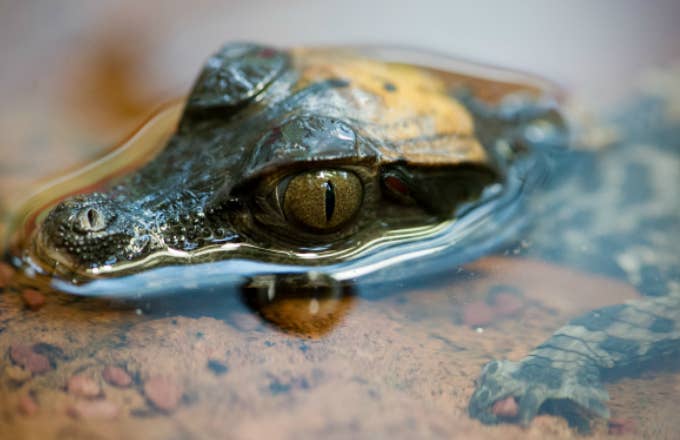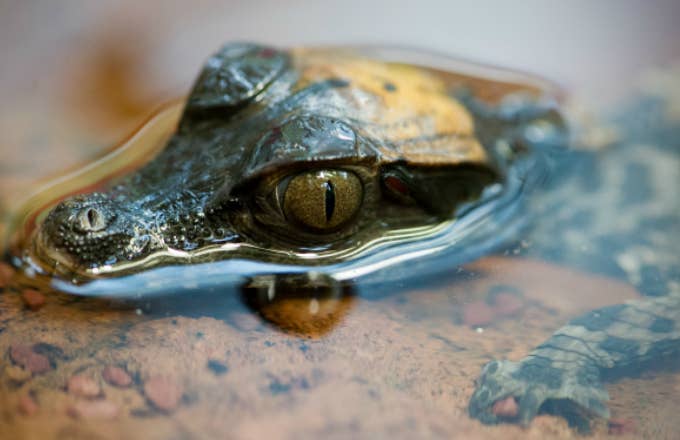
If there are two things that shouldn't be mixed together, it's radiation from nuclear energy and crocodiles. But that's exactly what's happening in Florida.
According to the Associated Press, a team of specialists rescued 73 baby crocodiles from Florida Power & Light’s Turkey Point nuclear plant last week. Apparently, that's only a small portion of the crocodiles that thrive in this area. Hundreds of crocodiles live in the 168 miles of canals that surround Turkey Point. This is purposely done as specialists working for the FPL monitor their behavior and protect them from hunting and climate change.
"We entice crocodiles to come in to the habitats FPL created," an FPL wildlife biologist and crocodile specialist Michael Lloret told the AP. "We clear greenery on the berms so that the crocodiles can nest. Because of rising sea levels wasting nests along the coasts, Turkey Point is important for crocodiles to continue."
Lloret and his team create nests for the crocodiles. Then, once the hatchlings are left by their mother, FPL tags the baby crocodiles with microchips so that they can further study their behavior. The FPL's program was established in 1978. Since then, they've tagged 7,000 hatchlings and helped move the species from "endangered" to "threatened." The program also hopes to raise awareness about the nature of crocodiles in hopes to better protect them from their reputation.
"American crocodiles have a bad reputation when they are just trying to survive," Lloret explained. "They are shy and want nothing to do with us. Humans are too big to be on their menu."

